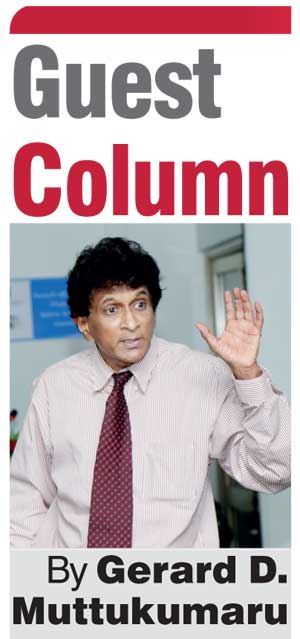Monday Feb 23, 2026
Monday Feb 23, 2026
Monday, 3 April 2017 00:01 - - {{hitsCtrl.values.hits}}
Following is an excerpt from the preface in the new book by the author:
Why do over 75% of leadership and change initiatives, especially in countries like Sri Lanka, not deliver the desired results? Sri Lankan organisations crave for anything new, but what have they done with what they already know? This is part of the focus of my upcoming workshop in Colombo.
Listen to every politician running for office, especially the leadership of a nation, and you will hear the same refrain: ‘We need change’ or ‘It’s time for change’. Former President Nicolas Sarkozy of France, Angela Merkel of Germany and so many others, campaigned on and were elected on a platform ‘for change’. On being invited to form a new government by the Queen of England, in his acceptance speech, Gordon Brown, pronounced, ‘And now let the work of change begin’. In one speech, he mentioned the word change over 20 times!
In the grandest prize of all, the leadership of the free world in the most powerful nation on earth, the USA, all candidates for the Presidency, are talking of change. In December 2007, a leading Democratic candidate for the Presidency, Hillary Rodham Clinton, has made ‘change’ the centrepiece of her campaign and put herself forward as the best person to ‘make change happen’. Her competitor for the democratic nomination, then Senator Barack Obama has also made ‘Change we can believe in’ his campaign platform! He created a movement for what he described as a ‘defining moment’ in history for America. His moment came when on 4 November 2008, Senator Barack Obama became President Barack Obama, the first African-American to become leader of the free world. ‘Change’, he said, ‘has come to America’. Billions all over the world were longing for the change he promised and for the young President to deliver. Expectations and emotions were rarely greater!
A very different kind of change, driven by anger, anxiety and fear, has today produced President Donald Trump in America, the ‘BREXIT’ divorce triggered last week and the deep crisis in the European Union which has a profound impact on global business and the global economy. Sri Lankan organisations depend heavily on the American and European markets.
Over and over again at the World Economic Forum, business leaders agree that their greatest challenge is to lead and drive change in their organisations. The world as they knew it yesterday, no longer existed. They were now in uncharted territory. No one knows what tomorrow will bring. The global political, economic and social landscape is changing every second!
What is this thing called change? What is the ‘work of change’ that Gordon Brown referred to? Change demands hard and painful work as we will see throughout this book, especially in organisations both in the world of business and the business of government. And what is the connection between the world of business and the world of government of politics? Why is it that so many change and leadership development initiatives in organisations and nations either do not take off, fail or do not deliver the desired outcomes? No matter where change is desired, from farms and tiny village enterprises to small, medium and giant organisations, and nations, it is people in the numerous cultures of the world, who must make it happen. This is a focus of my book.
Listen to every CEO of the most admired and profitable companies in the world admitting that they must change and develop the right leaders for sustained profitability and dominance in the new highly competitive global economy.
Yet what keeps so many leaders in business and government away from real change, not incremental or half-hearted change? Change can be terrifying. It turns the world as we know it upside down. It challenges the status quo and our ‘comfort zones’.
So many excellent books have been written on the subject of change, but they all essentially say the same thing. But how much really changes within organisations and for how long do these change initiatives endure? Initial excitement often dies a slow death. There are exceptions of course among the world’s most admired organisations led by CEOs who are real champions of change.
How much really changes within organisations in nations where 80% of the world’s people live, work and often struggle to make a living even in the smallest of enterprises? How do you drive real change in societies where former GE Chairman Jack Welch’s ‘Differentiation or vitality’ curve does not really entirely work? You cannot fire the ‘bottom 10%’ in these societies where the hiring process is also ‘heavily influenced’ by extraneous factors such as nepotism, personal, family and college connections? It is fear, ignorance and arrogance that often keep an organisation or nation from reaching its full promise or potential.
My book addresses the key challenges in leadership development and change in the local and global context and provides real solutions to make them happen and last. Here are some of the challenges that are addressed: